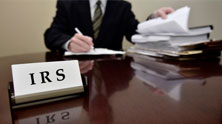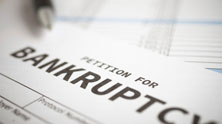Chapter 7 Bankruptcy
THE CHAPTER SEVEN BANKRUPTCY PROCESS
Chapter Seven Bankruptcy is a process where debts can be discharged. “Discharge” is the Bankruptcy word for eliminate. Generally, the first step is to meet with me to determine if discharging your debts is what you truly need. Typically, a consultation is scheduled with me and we analyze whether the benefit that you would obtain with a Chapter Seven Bankruptcy filing is worth the detriment of a Bankruptcy appearing on your credit report. We also make sure that you satisfy the Chapter 7 Bankruptcy “means” test and should not file a Chapter 13 Bankruptcy instead. Most often, the largest benefit of Bankruptcy is that many debts are dischargeable, including most credit card and other unsecured debts.
- Taxes less than three years old
- Student loans unless there is a hardship
- Marital debts including support and alimony
- Driving While Intoxicated judgments
- Some criminal fines and fraud
Second, a discharge can be denied in your entire case if, among other things: you have hidden assets, kept poor records, made a false claim, acted inappropriately, or received a discharge on a case filed in the past six years.
Third, depending on what assets you own you may not be able to exempt and keep all of them. Here is a list of some common exemptions showing what a Bankruptcy Debtor can keep:
- HOUSE EQUITY
- $60,000
- HOUSEHOLD CONTENTS
- Wearing apparel
- $750
Household goods
- $1,500
Jewelry, watches, etc.
- $2,000
Personal books and pictures
- $750
- EARNINGS
- Disposable earnings:
- 75% of earnings, or
- 30 times fed minimum per week
- VEHICLES
- $5,000
- BUSINESS ASSETS
- $20,000
A question often asked is what can be done with secured assets. Generally, if it is a car or house you are purchasing you must continue making payments if you wish to keep it. If you wish to give back the car or allow the house to be taken back by the lender you generally may do so without liability. The same applies to smaller assets purchased from department stores like refrigerators, stereos, etc., although in these cases you may usually make a “deal” with the creditor.
During the time up to the creditor’s meeting work with me or your creditors if you owe them $200 or more regarding any reaffirmations so that you can keep secured property if you wish, or even keep the unsecured credit. (Secured items are those that can be taken from you if you default on payment.) Items that are secured that you wish to return should be returned by the creditor’s meeting.
I will meet you at the creditor’s meeting which is usually nothing to worry about. In most cases it consists of three or four yes or no questions concerning your assets. I will brief you on the relevant issues right before the hearing.
The above information is provided as general information only and not intended to suffice as legal advice upon which you can rely for your particular situation. In the event that you have specific questions you are advised to contact Mr. Noyes.
Leave a Reply
You must be logged in to post a comment.






